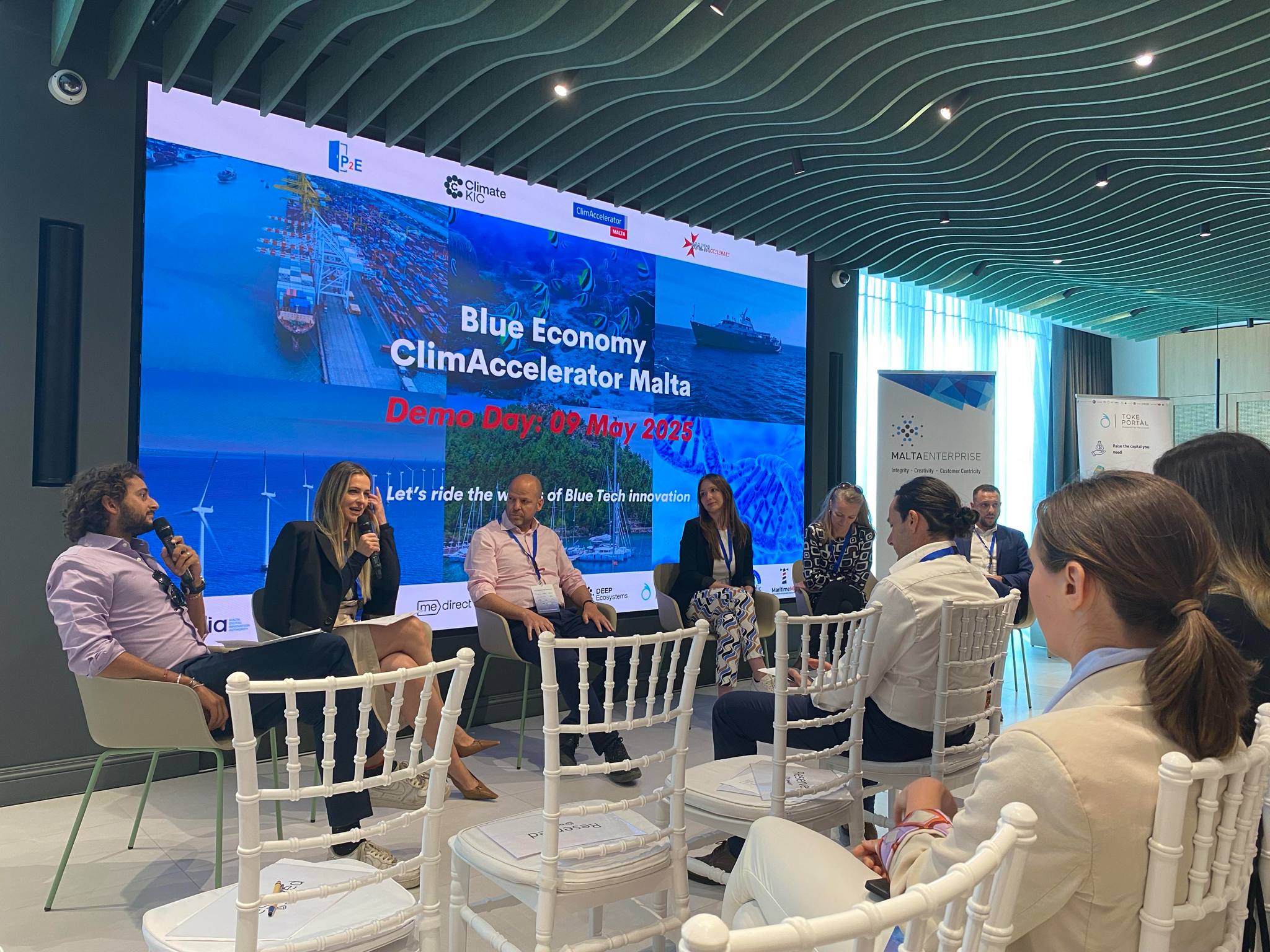Startups and innovators in Malta’s blue economy were encouraged to harness the power of policy and passion as driving forces for growth, during this Friday’s (today) Malta ClimAccelerator. The event brought together speakers from the European Commission, industry leaders, and venture capitalists, all highlighting the urgency of scalable solutions for ocean regeneration, sustainable aquaculture, and maritime innovation.
Two standout startups will be awarded for their contributions: One for having the largest impact on ocean and coastal communities (Impact Category), and the other for fastest scalability (Hypergrowth Category).
The pitch competition was hosted by Malorie Galligan, the Marketing Specialist and one of the Start-Up Mentors for the Maltaccelerate program.
A new wave of ocean investment
Matthew Walsh, expert board member at the European Commission’s Mission Restore Our Ocean and Waters, described the EU’s mission as entering a new phase of targeted innovation. “Europe is backing the ocean with investment,” he said, citing the combined support of Horizon Europe and BlueInvest, which together amount to €1 billion in funding.
What began as Mission Starfish – focusing on regeneration, decarbonisation, and governance – has evolved into a fully-fledged policy framework aligned with the EU Climate Pact, Biodiversity Strategy, and the Green Deal Industrial Plan.
“Policy is now enabling – and demanding – innovation,” Mr Walsh said. “Startups must understand this shift: Policy is a platform, not a hurdle.”
With over 750 Climate Pact Ambassadors, and €300 million in secured investments backed by €43 million in grants, Europe is actively courting scalable co-implementers in the ocean space. “We’ve never had more capital aligned to ocean climate goals,” Mr Walsh added.
Local ambitions and global challenges
Bernard Montebello of the Malta Digital Innovation Authority (MDIA) underlined Malta’s own commitment to innovation, stating that the country is in the process of building a high-performance computer. “We’re also upskilling and reskilling professionals,” he said, to ensure that Malta is ready for the demands of the future economy.
Katalin Magyar, Director of Business Development at Island Innovation, outlined the main pain points facing the blue economy:
- Marine degradation through overfishing and pollution
- Freshwater scarcity and mismanagement
- Unsustainable maritime transport
- The need for sustainable aquaculture and ‘blue food’ systems
Investors share what makes a startup stand out

Danijela Matovic, CEO at Strategic Investment Partners, discussing why startups need to share their revenue models
The event also featured a panel discussion featuring international and local investors who outlined what they look for in ocean-focused startups.
Ranier Chircop, Manager at Malta Venture Capital, said that founder passion is often the deciding factor. “You can see if they believe in what they are selling. That makes the difference between a great founder and one who doesn’t get funding.”
Asked what startups should consider, Nora Szeles, CEO at Tokeportal, advised leveraging crowdfunding for both capital and brand value. “The biggest advantage of crowdfunding is the marketing and visibility it generates around the startup,” she explained.
Ulyana Shtybel, CEO of Quoroom, stressed the importance of angel investors: “Before venture capital, reach the heart of angel investors. Their decisions are personal, emotional – you are literally pitching to every single one.”
For Anastasios Avranas, Managing Partner at Pella, commitment and practical application outweigh pure innovation. “It’s not just about science and technology – it’s about how you bring it to market.”
Danijela Matovic, CEO at Strategic Investment Partners, urged startups to take their financials seriously. “You need to show your revenue model, costs, and projections clearly. Many startups avoid this or don’t have the skills. It’s worth investing in financial expertise.”
When asked about memorable investments, Mr Chircop recalled a startup solving Malta’s traffic problem using its surrounding waters as a resource. “What stuck with me wasn’t just the numbers or the plan. It was the founder’s belief in solving a real, urgent problem. That kind of drive is what gets funded.”
Main Image:
